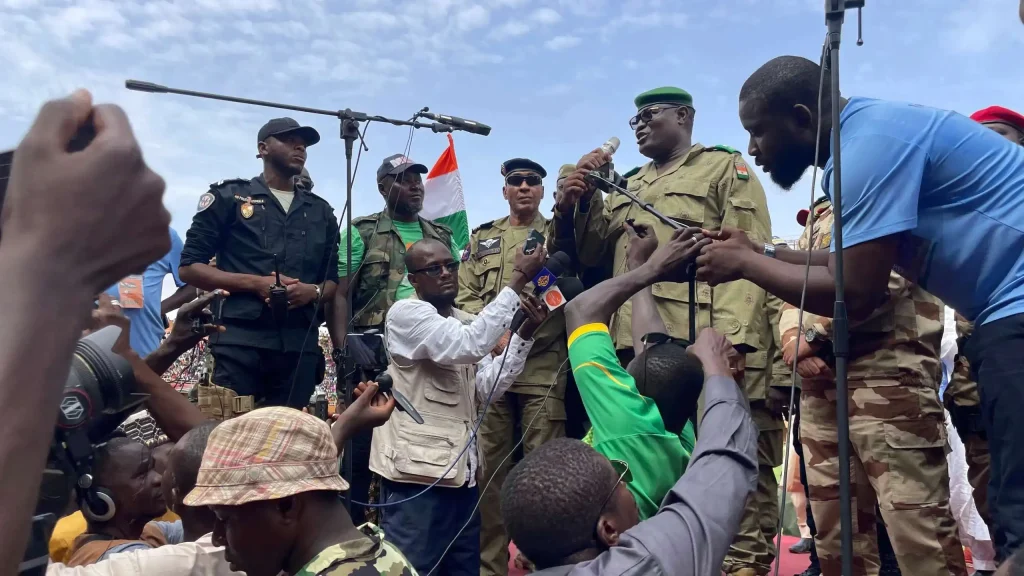On August 6, 2023, nearly 30,000 supporters gathered at the Seyni Kountche Stadium in Niamey to back Niger’s junta, led by General Abdourahamane Tchiani, as the Economic Community of West African States (ECOWAS) deadline to reinstate President Mohamed Bazoum expired. General Mohamed Toumba, a junta leader, denounced “shadowy forces” plotting against Niger’s “march forward,” rallying the crowd against perceived external threats. Many waved Russian flags, reflecting anti-Western sentiment, as the junta vowed to resist international pressure following the July 26 coup.
ECOWAS Ultimatum and Regional Divide
ECOWAS, chaired by Nigeria, had given the junta until August 6 to release Bazoum, detained since the coup, or face potential military intervention. Despite plans finalized by ECOWAS defense chiefs in Abuja on August 4, no immediate action was announced post-deadline. Nigeria’s Senate urged President Bola Tinubu to prioritize diplomacy, while non-ECOWAS neighbors Algeria and Chad rejected military action, with Algerian President Abdelmadjid Tebboune calling it a “direct threat to Algeria.” Mali and Burkina Faso, both junta-led, warned that intervention would be a “declaration of war,” deepening regional tensions.
Junta’s Defiance and Public Support
The junta, undeterred, closed Niger’s airspace on August 6, citing “the threat of intervention” and pledging an “energetic and immediate response” to any violation. On August 5, hundreds joined security forces in Niamey to patrol for “spies” and foreign intervention, while 100 people picketed an airbase, promising non-violent resistance. Tchiani, rejecting ECOWAS sanctions, claimed the coup addressed insecurity, though data shows a 40% drop in violent incidents in early 2023. The rally’s festive atmosphere, with portraits of junta leaders, underscored significant public backing.
Economic and Humanitarian Fallout
ECOWAS sanctions, including Nigeria cutting 70% of Niger’s electricity, have driven up food prices, worsening conditions in a nation of 25 million, one of the world’s poorest. Humanitarian groups warned of “devastating effects” on 4.4 million people needing aid. Italy reduced its 250 troops in Niger to accommodate civilians at its base, reflecting security concerns. The junta’s suspension of French media and revocation of military pacts with France, which has 1,500 troops in Niger, further strained ties with Western allies.
Geopolitical Shifts and Uncertainty
The coup, Niger’s fourth since 1960, threatens its role as a Western counterterrorism partner in the Sahel. Pro-Russian sentiments at the rally, coupled with Mali and Burkina Faso’s support, suggest a pivot toward new alliances, potentially involving Russia’s Wagner group. As ECOWAS plans a summit on August 10 in Abuja, the junta’s defiance and regional divisions raise the stakes, with fears of escalating conflict or prolonged instability looming over Niger and the Sahel.






